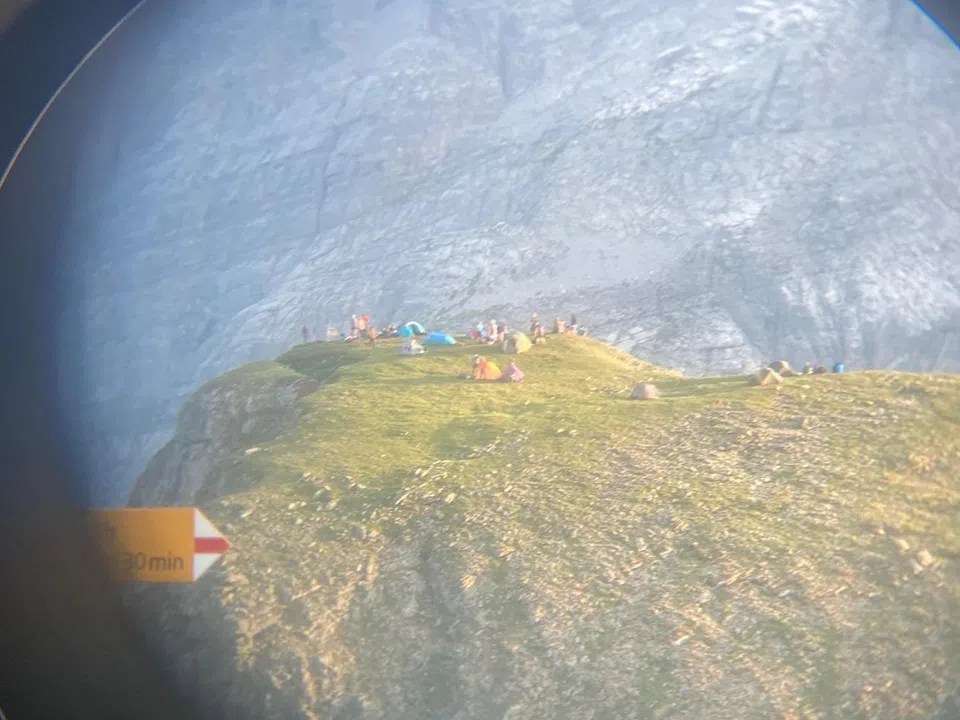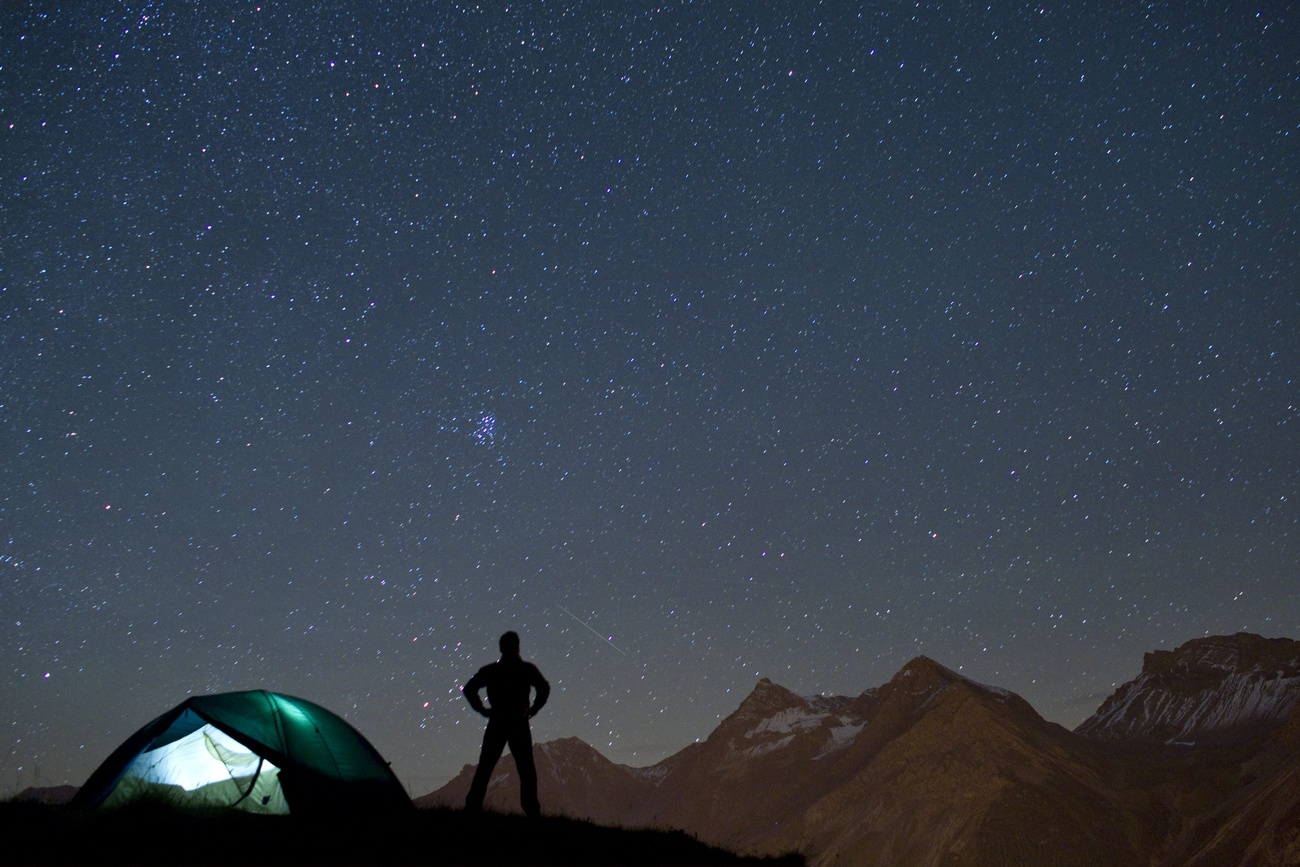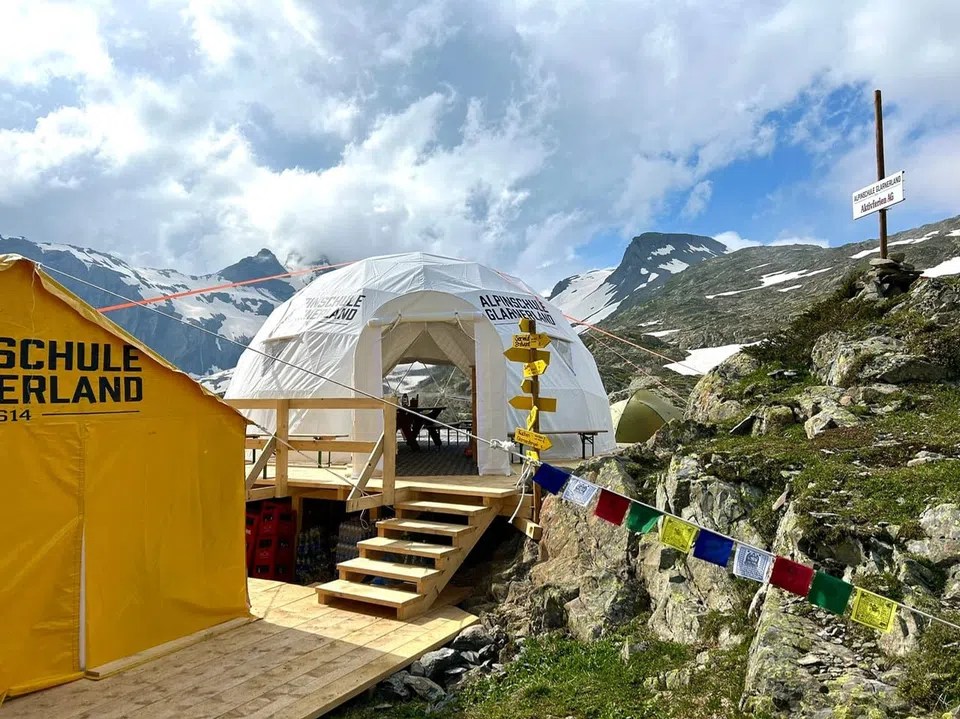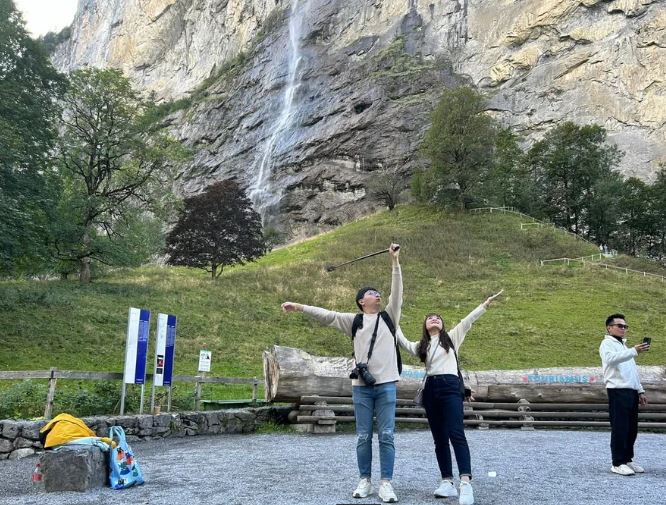Innovative measures against wild camping

The trend of wild camping, where individuals camp outside designated areas, is on the rise. Canton Glarus has decided to address this growing issue.
As the sun rises over the Muttenchopf in Glarus, the morning dew blankets the lush meadow, creating a sparkling carpet. From your cozy sleeping bag, you gaze upon the tranquil, turquoise waters of Lake Limmeren, nestled between towering cliffs. A quick snap for Instagram captures the moment.
These picturesque posts have spurred a wave of visitors. Dozens of wild campers flock to this “Instagram hotspot” during fair weather, creating an impromptu tent city.
Flattened meadows and littering
“On some days, I count up to 30 tents,” says Claudia Freitag, warden of the nearby Muttseehütte hut. She is concerned about the impact of wild camping: “Many people leave their rubbish behind.” Abandoned gear and even entire tents are sometimes left strewn about. The issue of human waste is also pressing. “People have to go somewhere.”
Read our article addressing this issue last year:

More
Campers inspired by social media disrupt Swiss alpine wildlife
Freitag finds it particularly frustrating when she has to explain to campers why they can’t leave their trash at the hut. Uninvited, these “wild” guests also use the hut’s toilets, unaware of the logistical challenges. “Our wastewater treatment system, located 2,400 meters above sea level, needs regular emptying, which is extra work for us.”
While Freitag has had pleasant interactions with some campers, she stresses that the situation has become unacceptable. The disturbance also affects local wildlife, with an ibex colony retreating from the area due to the increased human activity.
Establishing a base camp to combat wild camping
Besides Muttenkopf, there are other affected areas in Glarus, including Oberblegi Lake, Tierfehd, and Panixer Pass. A report by the department of construction and environment of canton Glarus highlights these issues in the south Glarus region. In response, local authorities have initiated a new approach.
At the end of July, a trial base camp was set up on the Panixer Pass. This camp features a large recreational tent, composting toilets, and several smaller tents available for daily rental, with optional half-board services. “Everyone loves it, and it looks fantastic,” says mountain guide and base camp co-operator Hans Rauner.

Rauner, now tasked by the canton with turning away wild campers, reports good compliance and understanding from most people. The canton has also announced enforcement measures, including fines for violators.
The base camp is funded by sponsors and private donations. Securing the necessary permits was challenging, says Rauner. “We’re hoping for a success story so that we can keep the base camp running in future years.”
Successful pilot at Glärnischhütte
Last year, a similar base camp pilot project at Glärnischhütte was a resounding success. Hut warden Fridli Riegg shared, “It was amazing, and the camp was incredibly popular.” The site recorded 1,900 overnight stays over roughly four and a half months, significantly reducing instances of wild camping during that period.
There is no general ban on wild camping in Switzerland. But there are restrictions.
Cantons can set their own rules. Ultimately, however, the respective municipality decides where guests are allowed to camp and where not.
Many cantons allow individual overnight stays above the tree line or in forests. Wild camping is generally prohibited in nature reserves.
It is advised to find out about the rules from the relevant municipality before wild camping.

More
Newsletters

In compliance with the JTI standards
More: SWI swissinfo.ch certified by the Journalism Trust Initiative














You can find an overview of ongoing debates with our journalists here . Please join us!
If you want to start a conversation about a topic raised in this article or want to report factual errors, email us at english@swissinfo.ch.